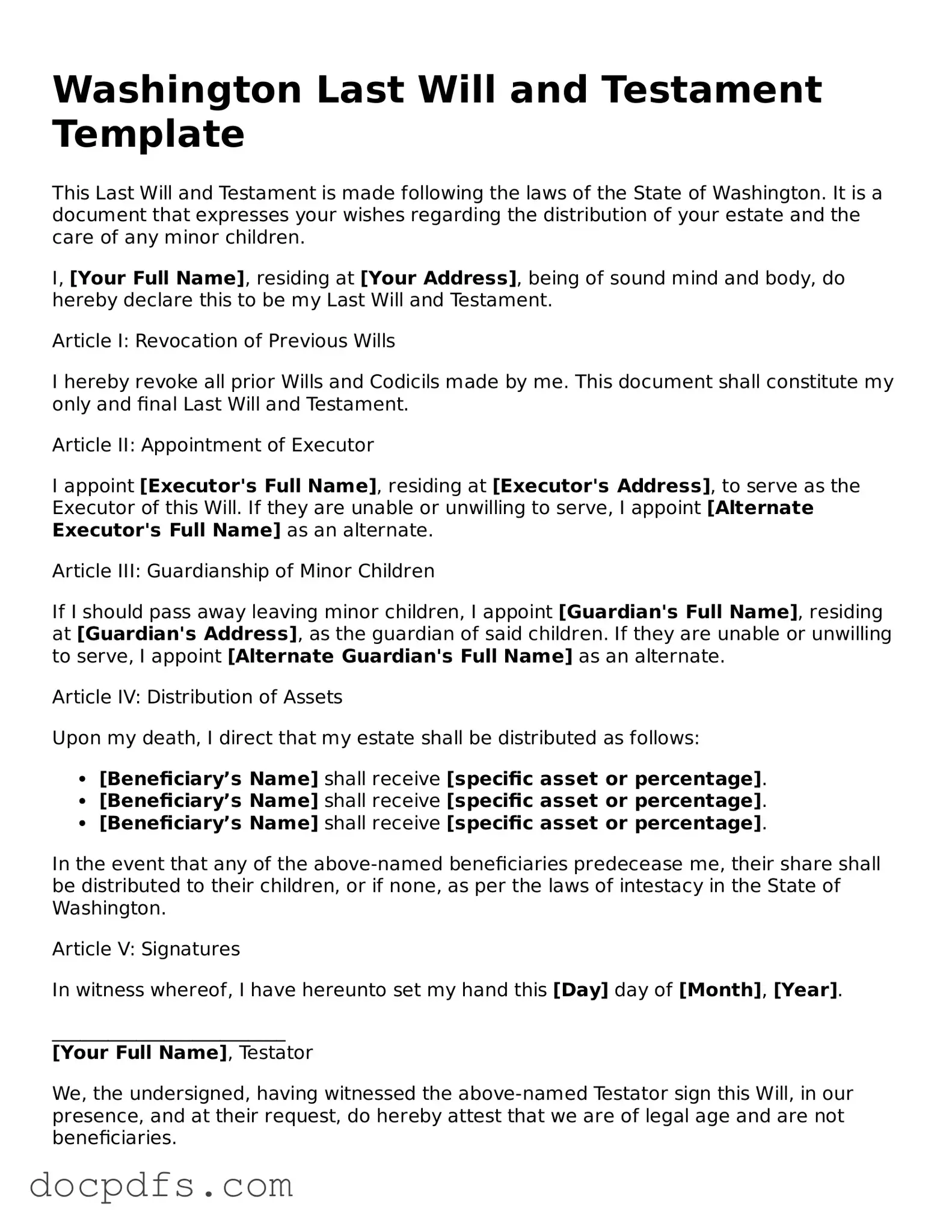What is a Last Will and Testament?
A Last Will and Testament is a legal document that outlines how a person's assets and affairs should be handled after their death. It allows you to specify who will inherit your property, name guardians for minor children, and appoint an executor to manage your estate.
Do I need a lawyer to create a Last Will and Testament in Washington?
No, you do not need a lawyer to create a Last Will and Testament in Washington. However, consulting with a legal professional can help ensure that your will meets all legal requirements and accurately reflects your wishes.
What are the requirements for a valid Last Will and Testament in Washington?
To be valid in Washington, a Last Will and Testament must meet the following criteria:
-
The testator (the person making the will) must be at least 18 years old.
-
The will must be in writing.
-
The testator must sign the will, or someone else may sign it in their presence and at their request.
-
At least two witnesses must sign the will, confirming that they witnessed the testator's signature.
Can I change my Last Will and Testament after it is created?
Yes, you can change your Last Will and Testament at any time while you are alive and mentally competent. This can be done by creating a new will or by adding a codicil, which is an amendment to the existing will.
What happens if I die without a will in Washington?
If you die without a will, your estate will be distributed according to Washington state laws. This process is known as intestate succession. Your assets will be divided among your relatives, which may not align with your wishes.
Can I include specific bequests in my will?
Yes, you can include specific bequests in your Last Will and Testament. This allows you to designate particular items or amounts of money to specific individuals or organizations. Be clear and detailed to avoid confusion.
How is an executor chosen, and what is their role?
You can choose anyone you trust to be your executor, such as a family member or friend. The executor is responsible for managing your estate, ensuring that your wishes are carried out, paying debts, and distributing assets according to your will.
Is it necessary to have my will notarized?
While notarization is not required for a Last Will and Testament to be valid in Washington, having your will notarized can help strengthen its authenticity and may simplify the probate process.
How do I ensure my will is kept safe?
Store your Last Will and Testament in a safe place, such as a safe deposit box or a fireproof safe at home. Inform your executor and close family members where the will is located, so they can access it when needed.

